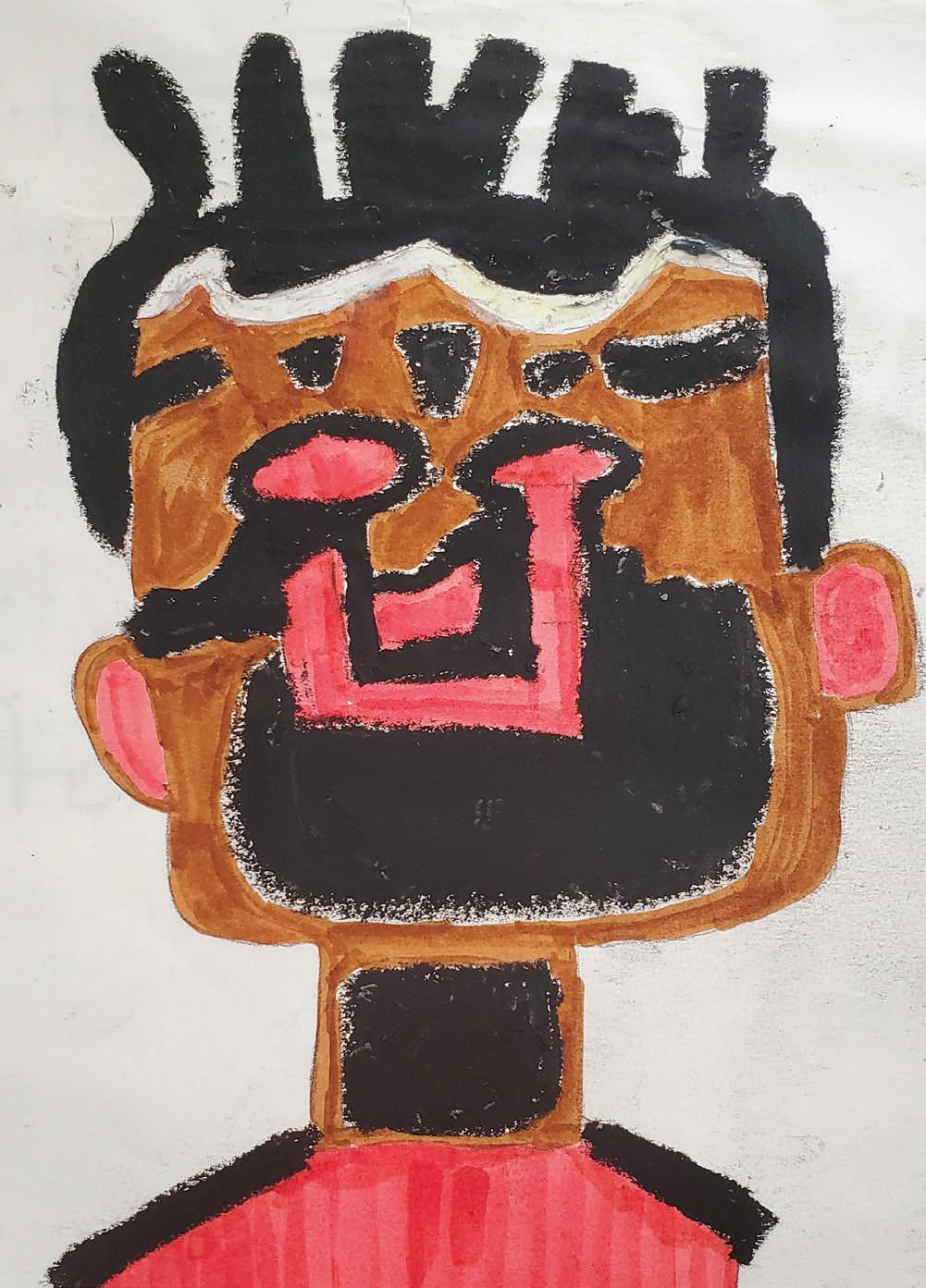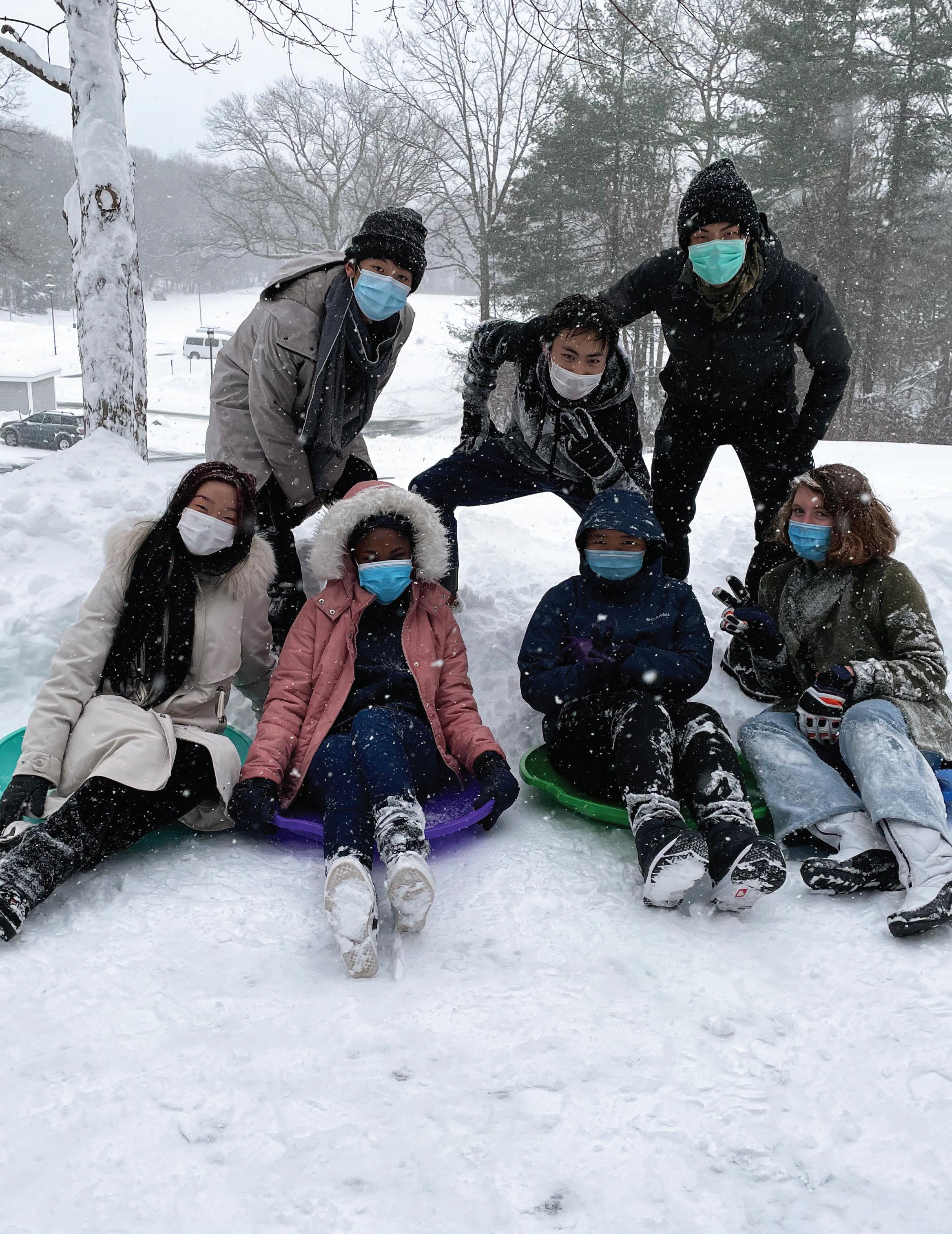
7 minute read
Creating Spaces
By Yelena Jeune ’07
Advertisement
As a teenager entering into high school, you know very little about what you should expect to get out of your experience, aside from a diploma and the hope that you will make friends. I had the unique opportunity to experience another private high school before becoming a permanent student at CSW. As school years start at slightly different times in the private/independent school community, I started the school year at CSW first, but after my first week at CSW, I was offered a bigger scholarship at another school that began a week later.
In that first week at CSW, I reconnected with some friends from summer camp, toured a campus filled with art, took a course called “Food and Culture,” and I watched as the older students danced in the grass barefoot. I was both excited to start my time at CSW with some old friends and nervous that I would turn into one of the barefoot dancing students. Spoiler alert: my shoes, for the most part, stayed on. When my mother told me I had to leave CSW after that first week to attend the school that had given us more money, I was heartbroken and my experience there did nothing to make me feel better. I was surrounded by students who spent more energy flipping their golden tresses than they ever did dancing in the grass, there was no art, there were no “Food and Culture” courses, and more importantly, there were no friends. After spending some time at this other school, I quickly realized that CSW was the school for me and begged my mom to get me back in. When she did, I felt so relieved and when I stepped foot back onto campus, I knew I was home.
My whirlwind beginning at CSW gave me a great deal of appreciation not only for the school itself and what it offered, but also for curating what my experience would be moving forward. I immediately locked in friendships with all of the students of color. There were only a few of us so naturally, as marginalized groups do, we flocked to each other. Forming the United Students of Color (USC) group during my freshman year only made sense. We all spent lots of time together already, but our time at the USC meetings was intentional and focused. We used our meetings to really get to know each other, creating goals and milestones for the group to accomplish. The group paved the way for me to have a built-in support system in a predominantly white institution, where I often felt overwhelmed and overlooked. We were all different, beating the odds in almost every avenue of our lives, many of us coming from single parent or low-income producing households. We did not arrive here by mistake or accident, nor did we have the benefit of generational wealth making our presence in private school all but a foregone conclusion like some of our white classmates. We worked hard to get here, we worked hard to stay here,
SPACES
and each of us had our own hurdles that we chose to work hard every day to overcome.
Being “one of the few” at CSW meant that you had to exceed expectations. There were few people of color in roles of power at the school, but the ones who were there never let us forget that we had to be exceptional. Having this constant reminder both empowered me and tore me down. While I was inspired by the Black leaders who pushed me, I also resented that they, not the white faculty, were the only ones constantly reminding me that I was different, widening the gap of difference between “us” and “them.”
USC was the only space for the students of color to be just that, united in our shared difference, comfortable in our color, free to intentionally talk about some of the experiences we were having in school and emboldened to organize monumental trips like the first-ever Historically Black College tour that served us. However, when those meetings ended, that was it. There weren’t very many spaces in CSW that celebrated racial identity, so we took it into our own hands to create more. During my time at CSW, we started USC, we created the first all students of color theater company, and we launched the first hip hop dance team by the time I was a senior. CSW encouraged student leadership and it was great that we had the agency as students (as kids!) to create space where there wasn’t, but I wish that as students (as kids!) we didn’t have to. Although most of us never felt that the predominantly white staff and faculty ever intentionally made us feel different, seeing the lack of intention around creating safe spaces for us as a minority group forced us to identify the differences and make the change ourselves.
I am still friends with all of the Black kids that I knew at CSW, one of them is my roommate in Brooklyn, another was my roommate when she first moved to New York and most of them I talk to on a weekly basis. Why is that? Why have we held on so fast and so tight to one another? I now realize that although we did not talk about it then, although we do not name it now, our bond is unbreakable because we went through something unique together. We created safety for each other at a time we did not know we needed it, in a place we never thought we would be in. We were the only Black kids at a predominantly white high school. The only. Shared experience takes something from you and gives it back to you different, not better, or worse, but different. I hope that future BIPoC (Black and Indigenous People of Color) students at CSW forge these same bonds, though I also hope the circumstances are different. I hope they do not have to seek out or create these safe spaces but that the spaces are already there for them to enter into with ease. Yet still, I hope that if CSW fails to create these spaces for these students, that the students of color at CSW continue to make a way where there is no way, either bolstered by the institution or in spite of it.
REFLECTIONS
Alumnus Kenneth Johnson ’00 considers the question: What do you wish others knew about your experience as a Black student at CSW?
Ground yourself. Frankly, in 1996 the CSW Black population was still stuck in tokenism; upon my arrival from Roxbury, I experienced immediate culture shock and hyper-visibility (fishbowl effect, expected but not prepared for, being Black with an afro) from the time I reached Brookline Village on my morning commute to when I returned that evening. I immediately took refuge in the handful of Black faces I could find while remaining open to the rush of attention from what felt like everyone. I owe a great deal of gratitude to faculty members Ingrid Tucker and Brian Walker, who both had similar backgrounds as me and their words of encouragement helped me ground myself and keep going.
Microaggression Preparedness. My freshmen year had me constantly asking “was I the first Black kid from (a Boston) Public School?” because I experienced trouble trying to communicate and connect with my peers and teachers. I wish I knew then what microaggressions were, as many of the hurdles I faced were with faculty who treated me like an experiment that stuck with me for years. Despite the chip on my shoulder that my experience left, the cultural education I received from meeting people from so many wonderful countries with their own cultures and languages has helped me tremendously to navigate all social interactions I’ve dealt with. So, though I would not trade it for any other high school education, partly because I know I would have had a similar experience in any of the New England private schools that accepted me, I felt unprepared to defend my agency from the persistent slights. My Momma would be my Johnnie Cochran for the times I was the victim of baseless allegations, price gouging, and tone-dead remarks (I’ve removed the dissertation-length details).
In summary, you passed the tests, jumped through all the hoops and the quad holds space for all walks of life; don’t let anyone make you feel like you do not belong.
PS: I hope my experience is an old relic and will not be shared by current Black students or faculty, eventually becoming a “look how far we’ve come” anecdote... I also believe diversity comes from the top down, so there’s still much work to do at CSW, which has done well hiring women but could do better with POC (People of Color) in top positions, which mirrors the USA’s comfort level with progress in diversity. Finally, I am grateful for the friendships and bonds I’ve made through my four years at CSW and hope for Black students that since I experienced that, hopefully you won’t have to go through that. Peace.










